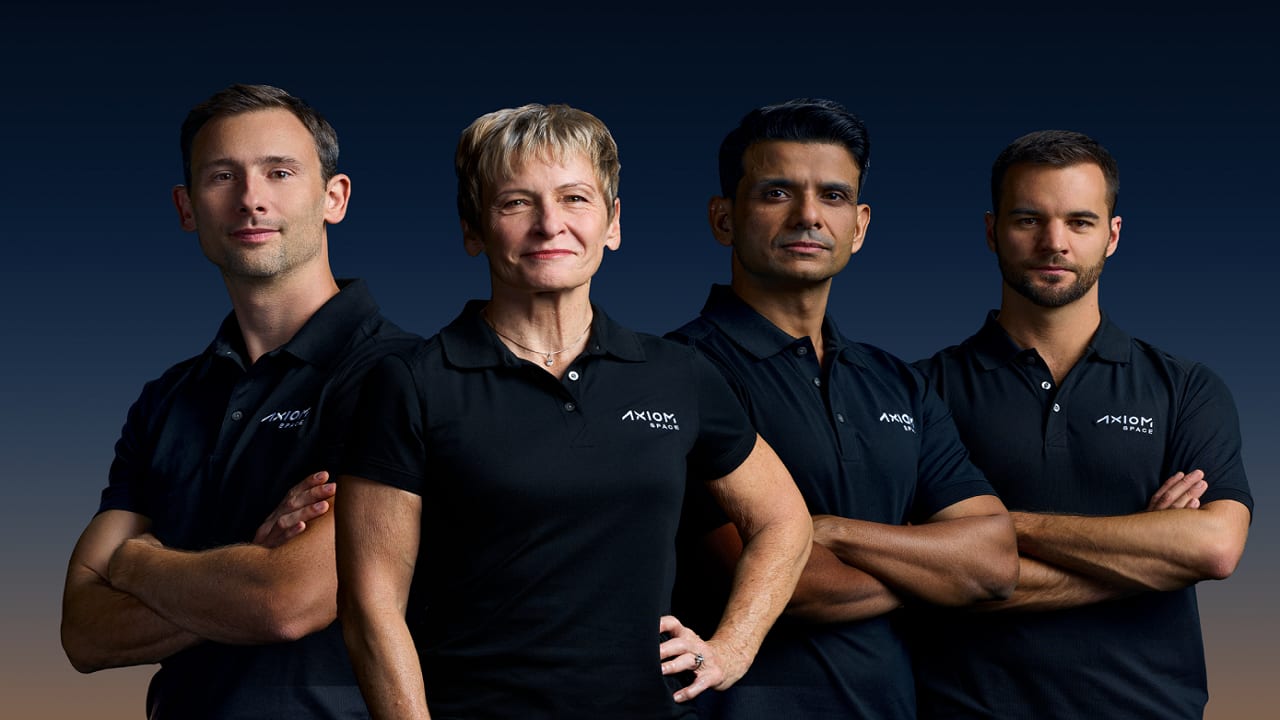Summary
Indian astronaut Shubhanshu Shukla to lead Indias scientific efforts on the historic Axiom Space Ax-4 mission, conducting pioneering space nutrition research during a 14-day stay aboard the ISS.
Source: Moneycontrol

AI News Q&A (Free Content)
Q1: What is the significance of the Axiom Space Ax-4 mission for India and its space program?
A1: The Axiom Space Ax-4 mission is significant for India as it marks the first time an Indian astronaut, Shubhanshu Shukla, will travel to the International Space Station (ISS). This mission, scheduled for June 10, 2025, represents a collaboration between NASA, ISRO, Axiom Space, and SpaceX. It not only highlights India's growing presence in international space exploration but also contributes to India's scientific and technological advancements by conducting pioneering space nutrition research during the 14-day mission.
Q2: How will Shubhanshu Shukla contribute to space nutrition research during his time aboard the ISS?
A2: Shubhanshu Shukla will lead India's scientific efforts on the Ax-4 mission by conducting space nutrition research. This research is crucial as it explores the impact of nutrient intake on health maintenance in space, the effects of microgravity on the human body, and the psychosocial benefits of mealtime during space missions. His work will help in understanding and quantifying nutrient requirements essential for the success of extended-duration space missions, which is pivotal for future human spaceflight endeavors.
Q3: What are the broader implications of space nutrition research for human health both in space and on Earth?
A3: Space nutrition research has significant implications for human health both in space and on Earth. It involves understanding how environmental conditions like radiation and microgravity affect the body's nutritional needs. This research also has direct applications in Earth-based nutrition, offering insights into maintaining health under extreme conditions and improving dietary guidelines. It is essential for ensuring the well-being of astronauts on long-duration missions and contributes to advancements in nutritional sciences globally.
Q4: What are the potential challenges faced by the Ax-4 mission, particularly in terms of space nutrition?
A4: The Ax-4 mission faces several challenges, particularly in terms of space nutrition. These include ensuring the provision of required nutrients in space, maintaining the endocrine, immune, and musculoskeletal systems, and overcoming the effects of microgravity on nutrient absorption. Additionally, the mission must address the psychosocial aspects of nutrition to maintain crew morale and productivity. Successfully navigating these challenges is crucial for the mission's success and the health of its crew.
Q5: How does the Ax-4 mission exemplify international collaboration in space exploration?
A5: The Ax-4 mission exemplifies international collaboration in space exploration by involving multiple space agencies and private companies, including NASA, ISRO, Axiom Space, and SpaceX. This partnership allows for the sharing of expertise, resources, and technology, enhancing the mission's success. It also demonstrates the global nature of space exploration, where countries and organizations work together to achieve common scientific and technological goals, thereby advancing human understanding of space.
Q6: What advancements in nutritional sciences have occurred over the past 60 years to support human space travel?
A6: Over the past 60 years, significant advancements in nutritional sciences have supported human space travel. These include the development of specialized diets that cater to the unique environmental conditions of space, such as microgravity and radiation exposure. Researchers have identified the vital role of nutrition in maintaining the endocrine, immune, and musculoskeletal systems, and developed methods to measure and optimize nutrient intake for astronauts. These advancements have been critical in ensuring the health and performance of astronauts on long-duration missions.
Q7: What is the role of psychosocial aspects in space nutrition, and why are they important?
A7: The psychosocial aspects of space nutrition are crucial in maintaining astronaut morale and productivity during missions. Mealtime serves as a social activity, providing a sense of normalcy and comfort in the challenging environment of space. It helps reduce stress and fatigue, fostering a positive atmosphere among crew members. Addressing these psychosocial aspects ensures that astronauts remain mentally and physically fit, which is vital for the success of long-duration space missions and the well-being of the crew.
References:
- Space nutrition: the key role of nutrition in human space flight




